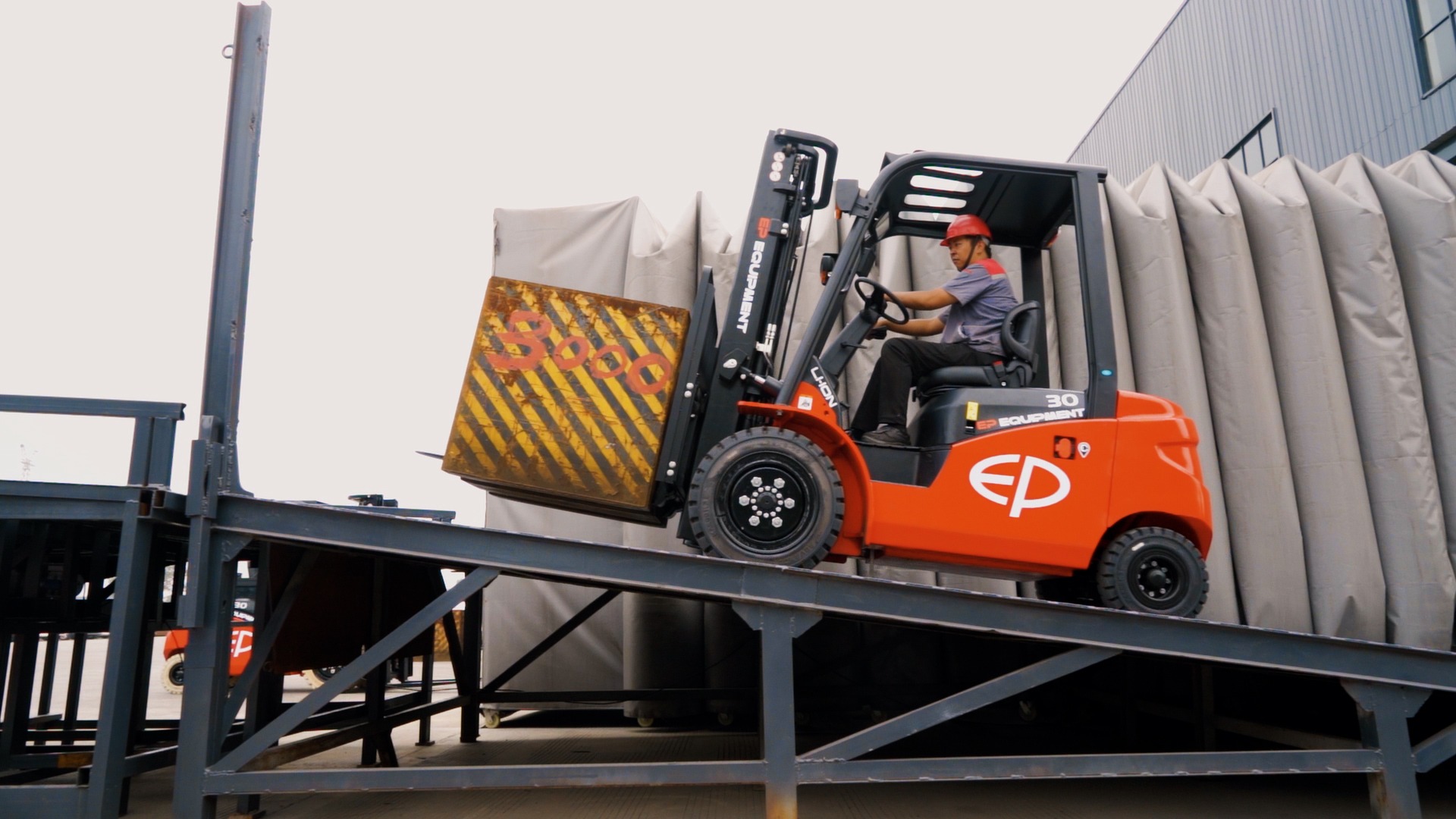In the dynamic and demanding environment of modern warehouses, the choice of equipment plays a crucial role in operational efficiency and productivity. One of the most transformative changes in recent years has been the adoption of electric forklifts. This blog post highlights the many benefits of electric forklifts and explores why they are becoming the preferred choice for warehouse operations.
Environmental Impact and Sustainability
One of the foremost advantages of electric forklifts is their positive environmental impact. Unlike their internal combustion counterparts, electric forklifts produce zero emissions, making them a greener option for warehouses. This reduction in emissions is not only beneficial for the environment but also for the health of workers who are no longer exposed to harmful exhaust fumes.
In addition to reducing emissions, electric forklifts contribute to sustainability through energy efficiency. They consume less energy compared to traditional warehouse forklifts, translating to lower operating costs and a reduced carbon footprint. With increasing emphasis on sustainable practices, electric forklifts align perfectly with the green initiatives that many companies are striving to implement.

Cost Efficiency and Operational Savings
While the initial purchase price of electric forklifts can be higher than that of traditional warehouse forklifts, the long-term cost savings are significant. Electric forklifts have fewer moving parts, which means lower maintenance costs and less downtime. The absence of an internal combustion engine eliminates the need for regular oil changes, filter replacements, and other engine-related maintenance tasks.
Moreover, the cost of electricity is generally lower than that of fossil fuels, resulting in substantial savings on fuel expenses. Over time, these savings can offset the higher upfront cost, making electric forklifts a financially sound investment for warehouse operations.
Enhanced Performance and Productivity
Electric forklifts are renowned for their superior performance and productivity. They provide consistent power throughout their operation, unlike internal combustion forklifts, which can experience a decline in performance as fuel levels drop. This consistency ensures that electric forklifts maintain optimal performance levels, contributing to higher productivity in the warehouse.
Another key benefit is the improved manoeuvrability of electric forklifts. They are typically more compact and have a tighter turning radius, which is especially advantageous in confined warehouse spaces. This enhanced manoeuvrability allows for more efficient navigation and handling of goods, ultimately boosting overall operational efficiency.
Noise Reduction and Workplace Safety
Noise reduction is a notable benefit of electric forklifts. Unlike the loud engines of traditional warehouse forklifts, electric forklifts operate quietly. This reduction in noise pollution creates a more comfortable and less stressful working environment for employees. A quieter workplace can also enhance communication among workers, improving coordination and reducing the risk of accidents.
In terms of safety, electric forklifts are equipped with advanced features such as regenerative braking and precise control mechanisms. These features not only improve the handling and stability of the forklift but also reduce the risk of accidents and injuries. Furthermore, the absence of exhaust emissions contributes to better air quality, promoting a healthier and safer work environment.

Flexibility and Charging Convenience
Electric forklifts offer significant flexibility in terms of charging options. They can be charged using standard electrical outlets or dedicated charging stations, providing versatility in different warehouse settings. Rapid advancements in battery technology have also led to the development of fast-charging batteries, minimizing downtime and ensuring that electric forklifts are readily available for use.
The introduction of lithium-ion batteries has further revolutionized the industry, offering longer run times and shorter charging periods. These batteries are also more durable and have a longer lifespan compared to traditional lead-acid batteries, enhancing the overall efficiency and reliability of electric forklifts.
Compliance with Regulations
As regulatory bodies around the world continue to tighten emissions standards and environmental regulations, electric forklifts offer a viable solution for compliance. They inherently meet stringent emissions criteria, reducing the risk of non-compliance and potential fines. For warehouses operating in regions with strict environmental regulations, the adoption of electric forklifts ensures that they remain compliant while benefiting from the operational advantages these forklifts offer.
Conclusion
The transition to electric forklifts presents numerous benefits for warehouse operations, ranging from environmental sustainability and cost efficiency to enhanced performance and workplace safety. The initial investment in electric forklifts is quickly offset by the long-term savings and operational advantages they provide.
For warehouses looking to upgrade their equipment, EP Equipment’s electric forklifts stand out as a reliable and efficient choice. With a range of innovative models designed to meet diverse operational needs, EP Equipment ensures that warehouses can achieve optimal performance while embracing sustainable practices. By investing in electric forklifts from EP Equipment, warehouses can not only enhance their productivity but also contribute to a greener and more sustainable future.